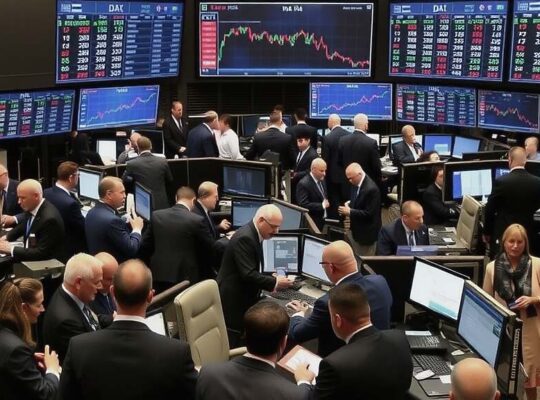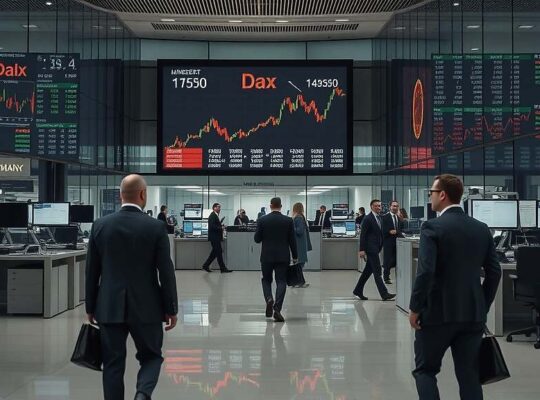The German stock market benchmark, the DAX, experienced a downturn on Tuesday, closing at 23,949 points – a 0.8% decrease compared to the previous day’s close. Despite a weaker start to the trading day, a brief recovery proved insufficient to surpass the prior day’s level, reflecting ongoing volatility and investor caution.
Christine Romar, Head of Europe at CMC Markets, highlighted the precarious balance between bullish and bearish sentiment surrounding the 24,000-point mark. “The willingness to take profits intensifies with even the slightest upwards impulse” Romar observed, pointing to the frequent, albeit fleeting, resurgence above the psychological barrier driven by opportunistic traders. She warned that the patience of these traders is being tested and a period of waiting for more favorable entry points is increasingly likely.
Romar dismissed the expectation that specific news events will pinpoint the triggers for market corrections, emphasizing that overheated stock prices are due for readjustment regardless. The escalating trade tensions between the United States and China continue to weigh heavily on investor confidence, with Europe consistently caught in the crossfire. The recent dispute surrounding Nexperia, a Dutch chip manufacturer and subsidiary of the Chinese Wingtech Group, has gained fresh urgency with Beijing’s warning of potential state intervention. This situation exemplifies the broader fragility of global supply chains and poses a direct threat to the German automotive industry, already grappling with potential shortages.
Beyond the immediate Nexperia issue, the conflict vividly illustrates the escalating risk inherent in the global trade of critical resources like semiconductors, rare earth minerals and other vital components. The increasing imposition of tariffs, countervailing duties and export restrictions is actively undermining free trade principles and creating a climate of uncertainty.
Individual stock performances were mixed, with Beierdorf, Commerzbank and Henkel trading close to stability while Fresenius Medical Care saw a significant drop. Despite a robust increase in profits, the dialysis specialist is reportedly struggling with challenges in the crucial US market, raising concerns amongst investors.
Further complicating the economic landscape, natural gas prices rose, reaching €33 per megawatt hour (MWh) for December delivery – a 3% increase from the previous day. This price surge is likely to translate to consumer electricity costs of at least 8 to 10 cents per kilowatt hour (kWh), inclusive of taxes and levies, if sustained.
Conversely, the price of Brent crude oil decreased to $64.48 per barrel, representing a 41-cent or 0.6% reduction, illustrating the continued volatility within the energy sector. The euro also weakened against the US dollar, trading at $1.1493, highlighting broader concerns surrounding European economic stability and the potential for persistent inflationary pressures. The interplay of these factors underscores the complex challenges facing the German and European economies amid a backdrop of geopolitical uncertainty.












